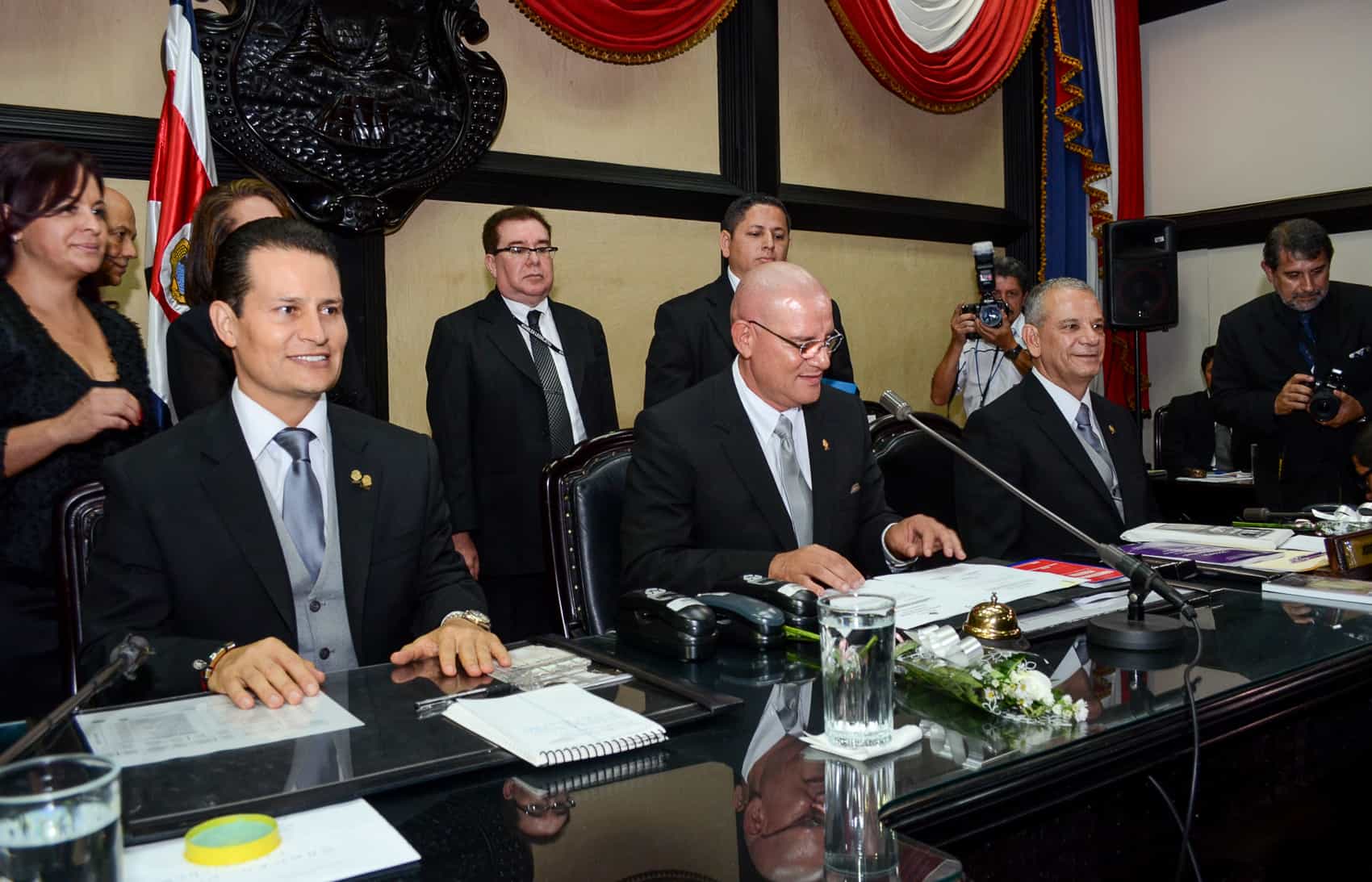The election of Costa Rica’s legislative directorate last week brought with it the creation of a new political bloc composed of the Citizen Action Party (PAC), the Social Christian Unity Party (PUSC) and the Broad Front Party (FA). That alliance will help significantly change the dynamic of Costa Rica’s legislative branch, analysts say.
On May 1, Henry Mora and Marcela Guerrero of PAC were elected Assembly president and vice president, respectively. Luis Alberto Vásquez and Jorge Rodríguez of PUSC were elected as first and second secretaries, respectively. And Nidia Jiménez and Laura Garro, of PAC, were elected undersecretaries.
Those elections were possible following an alliance between PAC, PUSC and FA after agreements were reached to prioritize specific policy issues. To win the directorate, PAC received votes from PUSC and FA, and after last-minute negotiating, obtained one more vote than the minimum needed to win. If that trend continues, it could be a positive sign for the country’s legislative politics.
“It is clear that we are entering a new era in national politics,” political analyst Alberto Cortés said. Multiparty negotiations are a sign of “a new dynamic.”
“The Assembly’s composition means it was essential to look for a multiparty composition of the directorate and seek broad agreement, and that’s what happened,” Cortés said.
Negotiations are crucial, he added, because the Assembly is now composed of representatives from nine parties, and no party has a simple majority.
Signs of consensus
On April 30, before the directorate election, PAC lawmakers signed individual agreements with the FA and PUSC. For Cortés, this alliance shows that the new lawmakers are responding to the public’s demand for a change in the political status quo.
“On the issue of social security, infrastructure and the reactivation of the economy, I think it’s going to be possible to reach agreements within this new bloc. And on some of the issues, it’s also going to be possible to include lawmakers outside the bloc,” Cortés said.
This week, parties agreed to begin working on a reform of the Development Bank Law, with discussion set to start by May 26. They also agreed to discuss reform of lawmakers’ salaries, a contentious issue in the last Assembly.
The PUSC agenda
According to agreements signed on April 30, PUSC will promote legislation that includes limits to public salary bonuses and pensions, public spending, and hiring at autonomous agencies. They also seek more autonomy for municipal governments.
Other items on the legislative agenda include financing the renovation and expansion of Route 32 from San José to Limón, and development of geothermal energy in the northwestern province of Guanacasete with financing from the International Cooperation Agency of Japan and the European Investment Bank.
Historian and analyst Vladimir De la Cruz said PUSC can become an important ally for the now-ruling party PAC, and former PUSC presidential candidate Rodolfo Piza, who served as president of the Costa Rican Social Security System, or Caja, during the administration of President Miguel Angel Rodríguez (1998-2002), could play an important role in the process.
“I don’t see [the alliance] as a bad thing. This is a successful result of Rodolfo Piza’s candidacy, and he has played a key role in reaching these agreements,” De la Cruz said.
The analyst said that although PUSC lawmakers have little legislative experience, they have good advisers.
FA’s agenda
The Broad Front Party also outlined its legislative agenda, which includes strengthening the Caja’s collections system, promoting coastal communities legislation, including water rights in the constitution, fighting corruption, and other issues.
Cortés said it is “logical” that FA will try to shift the legislative agenda further to the left of the political spectrum.
“I think the FA decided to bet on its agenda and not worry about the administrative side of joining the leadership. Where I do think we’ll be seeing them in positions of formal responsibility will be in the legislative commissions,” he said. “I think it’s a good bet, as it’s in the commissions where lawmakers decide which bills advance and which don’t.”






